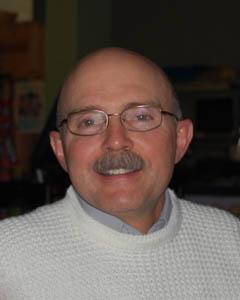Meet EPA Scientist Heriberto Cabezas, Ph.D.

Heriberto Cabezas, Ph.D. is currently the Senior Science Advisor to the Sustainable Technology Division in EPA's National Risk Management Research Lab, where he works to advance the scientific understanding, development, and application of science and technologies to address a variety of areas related to sustainability. He was formerly an Acting Director of the Division, and Chief of the Sustainable Environments Branch.
Dr. Cabezas served as Chair of the Environmental Division of the American Institute of Chemical Engineers (AIChE) in 2006. He was a recipient of the 1998 EPA Science Achievement Award in Engineering, and the 2007 Distinguished Alumni Achievement Award from the New Jersey Institute of Technology, and the 2011 Research Excellence in Sustainable Engineering Award from the AIChE Sustainable Engineering Forum. Most recently, the San Luis Basin Sustainability Project Team, of which Dr. Cabezas is a member, received the 2011 Sustainability Award from the EPA's Office of Research and Development.
His publications include over sixty peer-reviewed articles and books. He is a Fellow of the AIChE, a member of the American Association for the Advancement of Science, and a Board Certified Member of the American Academy of Environmental Engineers. Dr. Cabezas is a decorated U.S. Navy veteran of the Vietnam Conflict.
When did you first know you wanted to pursue science?
I think I must have been five or six. For some unknown reason, I was playing with the electricity in my house. Of course as a six year-old I was lucky to survive. I did hook up a number of things and the lights went out in my house. I had to fix it quietly so my parents wouldn’t notice. The second time, I redid my rig and the lights didn’t go out. I was always interested in science.
Tell us about your science/educational background.
I received a Bachelor’s degree in chemical engineering from the New Jersey Institute of Technology. My Master’s degree is also in chemical engineering, from the University of Florida. I received my Ph.D. in chemical engineering from the University of Florida in the areas of thermodynamics, statistical mechanics, and chemical physics.
What brought you to EPA?
At the time, I knew a division director at the EPA. We would meet at professional conferences and he would talk about EPA and the work they were doing. I finally blurted out one day, “Maybe I should join the EPA.” I waited until a position came open in Cincinnati and joined EPA and that was 18 years ago.
How does your science matter?
My work focuses on preventing environmental problems from happening in the first place. I mostly work on designing processes that have the smallest environmental footprint.
More recently, I have been working on sustainability. We have to ask ourselves, “How can we successfully manage the environment so that we avoid environmental problems in the long term?” The kinds of things that my coworkers and I do matter because it’s the best way to protect the environment and human health: being proactive. We’re not trying to fix a problem after it has already occurred, but trying to see if we can prevent the problems from occurring in the first place. I think that is important.
What do you like most about your research?
I think the research we do at EPA is such that it helps everyone. There is a quote from the founding administrator of the EPA, William D. Ruckleshaus, where he says, “EPA was not created to deal with the usual mix of social problems whether they be poverty, jobs, housing, education, crime …. In a real sense, EPA’s mission transcends all of these. That mission is the preservation of life itself.”
Therefore, I think bringing my skills to work on the problems, which I think are maybe the most critical problems that humanity has, is satisfying.
If you could have dinner with any scientist, past or present, who would it be?
If I had a choice, I’d like to talk to John von Neumann. Von Neumann was a Hungarian mathematician and he was a founding figure in modern computer science.
What would you like to ask them?
I would like to ask him how he came up with his idea, because to me, the invention of the programmable computer is one of the most profound things that has occurred in the last one hundred years.
If you were not a scientist, what do you think you would be doing?
I don’t know what it would be like to not be a scientist! I don’t think I could be anything else. If you go to a fish and ask, “If you were not swimming in water, what would you be doing?” It would answer, “I don’t know, this is what I have been doing all my life.” I think this is what I should be doing.
Any advice for students considering a career in science?
Try to do something for which you are passionate. It's very important. Being a scientist is not a part-time job, it's a vocation. Fortunately, there are many areas of science, from social sciences, to physics, to chemistry, to biology, to toxicology, to what have you, from which to choose.
You have to find the one that makes you say, "This is what I would really like to do." Ask yourself, if you were independently wealthy, would you do this for free? If the answer is yes, you have found your niche. If the answer is no, look for something else.
Editor's Note: The opinions expressed herein are those of the researcher alone. EPA does not endorse the opinions or positions expressed.
